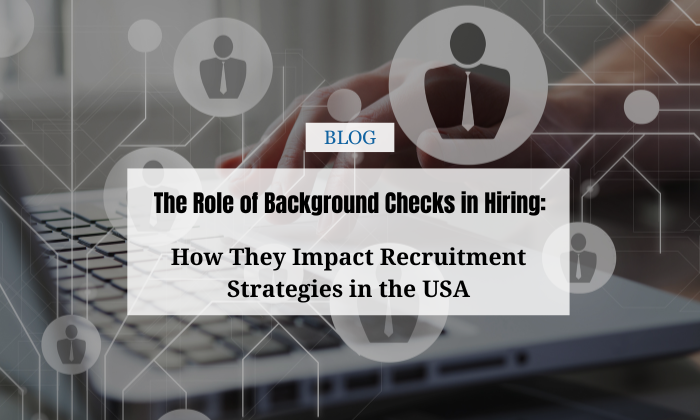In the realm of recruitment, background checks play a pivotal role. They serve as a crucial tool for employers in the United States, aiding in informed decision-making during the hiring process.
Background checks encompass various aspects, from criminal history to credit checks, employment history, and educational verification. They help mitigate potential risks associated with hiring, ensuring a safer and more productive workplace.
However, the process is not without its complexities. Legal considerations, ethical dilemmas, and evolving technologies all influence how background checks are conducted and utilized in recruitment strategies.
In this article, we delve into the impact of background checks on hiring, exploring their role in shaping recruitment strategies within the USA.
Work with a background check provider like Securecheck360
Here at Securecheck360, we’re experts in delivering reliable, fast turnaround and affordable Employment Background Screening Services, serving businesses of all sizes across the globe. Our customized solutions are finely tuned to meet the unique requirements of small, mid-sized, and large organizations. We’re dedicated to equipping companies with the vital tools and insights they need to make well-informed hiring choices. As one of the leading background verification companies, we’re committed to supporting even small businesses as trusted background check companies for small businesses to ensure they have the confidence to build the best teams for their success.
To know more about our services, book your free demo today!
The Prevalence and Purpose of Background Checks in Hiring
Background checks are a common practice in the USA’s hiring process. They are considered a standard procedure for most employers, regardless of the industry or job role.
The primary purpose of these checks is to verify the information provided by candidates. This includes their employment history, educational qualifications, and any potential criminal records.
By conducting background checks, employers can mitigate the risks associated with negligent hiring. It helps them avoid potential lawsuits and maintain a safe working environment.
Moreover, these checks can uncover discrepancies in resumes or applications, ensuring the integrity of the hiring process.
Legal Framework Governing Background Checks
In the United States, background checks are governed by a legal framework. This framework ensures that the process is conducted ethically and respects the rights of the candidates.
The Fair Credit Reporting Act (FCRA) is a key piece of legislation in this regard. It sets the standards for employment screening and protects the privacy of job applicants.
However, the legal landscape is not uniform across the country. State-specific laws and regulations can also apply.
One such example is the “Ban the Box” laws, which have been adopted by several states.
The Fair Credit Reporting Act (FCRA)
The FCRA is a federal law that regulates the collection and use of consumer information. It applies to background checks conducted for employment purposes.
Under the FCRA, employers must obtain written consent from candidates before conducting a background check. This ensures transparency and protects the rights of the individuals involved.
State-Specific Legislation and “Ban the Box” Laws
In addition to the FCRA, state-specific laws can also impact the background check process. These laws can vary significantly from one state to another.
For instance, some states have restrictions on the use of credit history in employment decisions. Others have laws that limit the use of criminal records.
“Ban the Box” laws are another example. These laws prohibit employers from asking about criminal history on job applications, delaying such inquiries until later in the hiring process.
Components of a Comprehensive Background Check
A comprehensive background check is multi-faceted. It delves into various aspects of a candidate’s past.
The most common components include criminal history checks and credit checks. These provide insights into a candidate’s legal and financial standing.
Employment history and educational verification are also crucial. They validate the information provided by the candidate.
Each component plays a unique role in painting a holistic picture of the candidate.
Criminal History and Credit Checks
Criminal history checks are a common component of background checks. They reveal any criminal convictions or pending legal issues.
Credit checks, on the other hand, assess a candidate’s financial responsibility. They are particularly relevant for positions involving financial transactions or sensitive information.
Employment and Educational Verification
Employment verification involves contacting previous employers. The goal is to confirm the candidate’s job title, tenure, and performance.
Educational verification checks the authenticity of the candidate’s educational qualifications. It ensures that the candidate has the necessary credentials for the job.
Impact on Recruitment Strategies and Workplace Safety
Background checks significantly influence recruitment strategies. They help filter out unqualified or risky candidates early in the process.
This leads to a more efficient hiring process. It also ensures a higher quality of hires.
Moreover, background checks contribute to workplace safety. They help identify potential threats, reducing the risk of workplace violence or theft.
In essence, background checks are a vital tool for creating a safe, productive work environment.
Ethical Considerations and Candidate Privacy
While background checks are crucial, they must be conducted ethically. Employers must respect candidate privacy and avoid discrimination.
The Equal Employment Opportunity Commission (EEOC) provides guidelines to prevent discrimination in the use of background information. Employers must adhere to these guidelines.
Balancing thorough background checks with respect for candidate privacy is a delicate task. It requires careful planning and execution.
The Role of Technology and Third-Party Providers in Background Checks
Technology is revolutionizing the background check process. Automation and AI are streamlining verification, making it faster and more efficient.
Third-party providers play a significant role in conducting background checks. They must comply with all relevant regulations to ensure the legality of the process.
The rise of remote hiring due to COVID-19 has also influenced the virtual verification processes. This trend underscores the importance of technology in background checks.
Conclusion
Background checks in hiring are a delicate balance. They must be thorough enough to mitigate risks, yet efficient to avoid slowing down the recruitment process.
Employers must also respect candidate privacy. This balance is crucial for a fair, effective, and legally compliant hiring process.
In conclusion, background checks are an integral part of recruitment strategies in the USA. They help ensure a safe, qualified workforce while protecting the company from potential liabilities.







